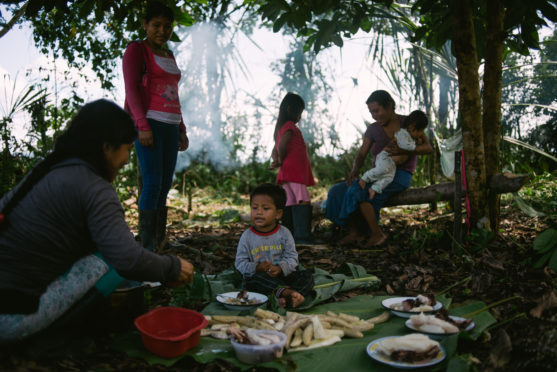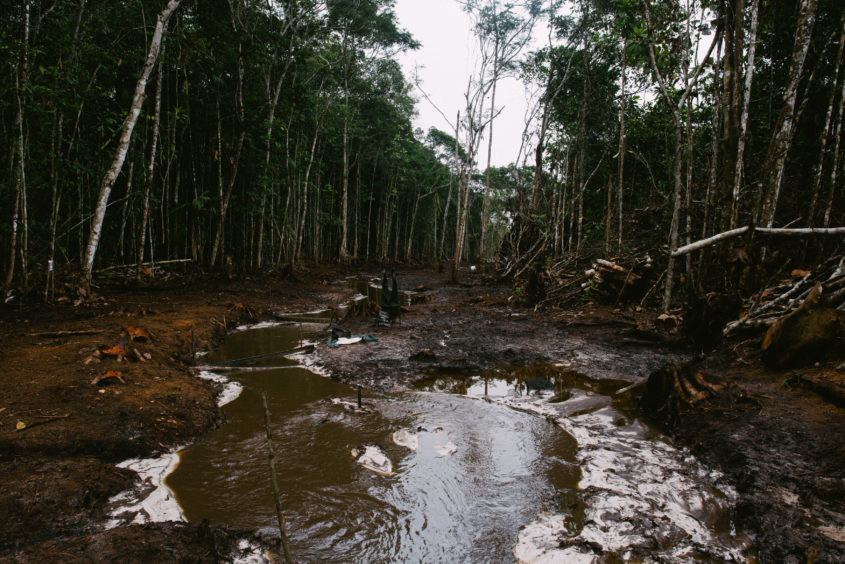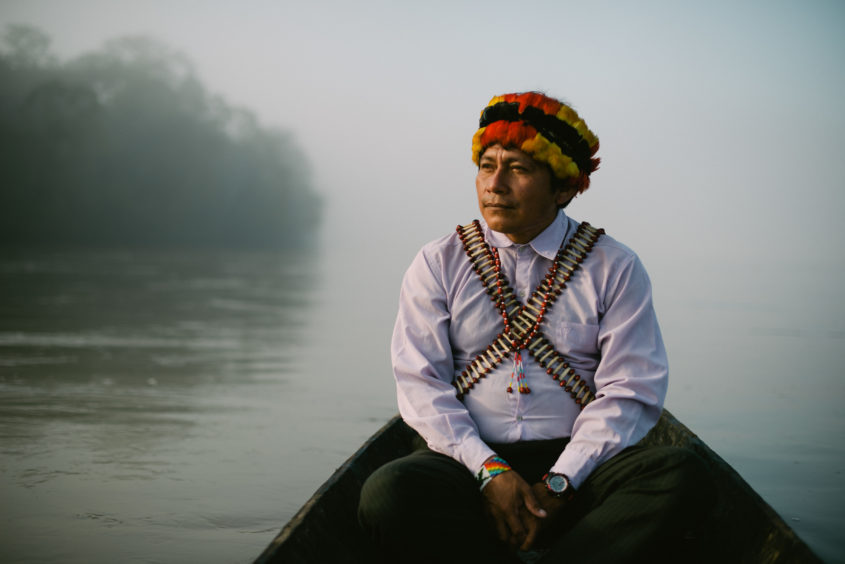
A global financial company based in Scotland has £12 million invested in an oil firm accused of endangering the existence of indigenous people in the Peruvian Amazon.
Standard Life Aberdeen, Britain’s biggest listed asset manager, invests in a Chilean company called GeoPark, which is at the centre of a dispute over its plans to extract oil in the Loreto region of Peru.
The Wampis Nation, who fear Covid-19 could be catastrophic for indigenous groups as the pandemic spreads in the Amazon, has taken legal action against GeoPark after accusing the firm of sending workers into the territories during lockdown. GeoPark strongly denies it has carried out any work in the area in recent months.
After taking early action to close its territory at the start of the coronavirus crisis, the Wampis Nation had some success in stemming the pandemic. But it says the Covid-19 situation is now “critical”.
The Wampis, who number about 20,000, filed a criminal complaint against GeoPark in May, alleging the firm was putting lives at risk among the Wampis communities of the Morona River.
A legal hearing is expected to take place on Thursday and the Wampis has now called on Standard Life Aberdeen to stop investing in GeoPark, whose securities are listed on the New York Stock Exchange. According to filings on March 31, the Scottish firm held 2,141,302 shares of GeoPark Ltd, valued at $15,139,000 (£12m).
Wrays Pérez, Pamuk president of the Autonomous Territorial Government of the Wampis Nation (GTANW), told The Sunday Post: “We ask Standard Life Aberdeen to withdraw its support from the company. We do not want you to use your position as a shareholder to simply pressure GeoPark to work in a friendlier socio-environmental way. Withdraw your support. We are not against development. We are against the damage that is being done to the Amazon.”
Aberdeen Standard Investments, headquartered in Edinburgh, said: “We regularly engage with all companies we invest in to fully understand the impact its operations have on its employees and the environment in which it operates. We have recently had conversations with GeoPark’s management team, including the effect of Covid-19 on its business and would expect management to take decisions to protect employees of the company as well as the local community.”
GeoPark said it maintains the “highest environmental, social and safety standards” and said no oil has been taken from the site. The company said that on March 15, just before lockdown, contact was ended between staff and locals at Campamento Morona. Seven workers remained there after lockdown.
GeoPark said: “On June 22, the company made the decision to suspend temporarily all activity.” Before being flown out, the workers were tested and did not have Covid. Throughout this time all required health and security protocols have been strictly implemented.”
Tom Younger, Peru co-ordinator with a human rights group called Forest Peoples Programme, said: “Rich countries including Scotland have accumulated enormous wealth through centuries of colonialism and the extraction of materials and energy from the territories of indigenous peoples and local communities across the world.
“Recognising and making reparations for this ecological debt means putting an end to financing extractive projects imposed without prior consent on indigenous peoples’ territories and communities such as those of the Wampis people in the Peruvian Amazon.”
Friends of the Earth Scotland Director Dr Richard Dixon said: “Major investors can no longer turn a blind eye to the destruction that their money is helping pay for in other countries.
“Around the world we see governments and corporations exploiting the coronavirus crisis to roll back important environmental safeguards.”

Enjoy the convenience of having The Sunday Post delivered as a digital ePaper straight to your smartphone, tablet or computer.
Subscribe for only £5.49 a month and enjoy all the benefits of the printed paper as a digital replica.
Subscribe © Jacob Balzani
© Jacob Balzani © Jacob Balzani
© Jacob Balzani